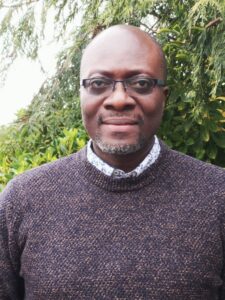By Eric Addae-Kyeremeh
One of my passions as an educator and leader is to ‘develop others’ and to see people make progress, personally and professionally. Doing this requires building relationships with people and understanding their professional histories as well as their aspirations. Throughout my work, I pay particular attention to the personal- what people want to know; behavioural- what choices people can make about what they want to know; and environmental/contextual factors that facilitate and/or constrain the choices people want to make. These three ingredients for me shape self-development to a large extent in many situations. In this blog post, I reflect on a study I carried out that explored the learning and development of a group of headteachers.
In recent years, headteacher professional knowledge, collaboration and community have become valued elements of professional development due to new evidence on leadership learning and development, and the potential for networking to support this (McCormick, Fox, Carmichael and Proctor, 2010). This speaks well to the Ghanaian Akan Adinkra sign – Ti koro nkɔ agyina meaning, two heads are better than one, therefore connecting to others to seek wise council is highly promoted in Ghanaian communities.

So, when I set out to study the learning and development practices of 17 headteachers’ for my doctorate, four issues sufficed (i) the types of information and advice headteachers valued most in dispensing their professional duties, (ii) who they go to for wise council for these types of information and advice, (iii) the ‘network’ locations of each of these 17 headteachers within the group and how that impacts on their capacity to mobilise network resources (i.e. information and professional advice) and (iv) their capacity to make informed decisions based on their experience and the collective knowledge of their peers. To address these issues, I needed a methodology and method(s) that offered the opportunity to capture the personal experiences (narratives) and capacity to mobilise what they value as useful information and advice for the professional development (social network structure and measures). This required combining some form of ethnography with social network analysis in a sequential mixed method approach I’ve described as SNA with ethnographic sensibility (Addae-Kyeremeh, 2020). Three types of instruments were used – interviews, observation, and questionnaire.
But, I agree, this can be a contested approach to learning and development because of concerns about the system being inward looking and that it risks stifling innovation. Nonetheless, the headteachers were very critical about over reliance on ‘external experts’ unaware of the school context to deliver trainings and workshops and were more open to peer-to-peer learning and sharing. There is also the danger of situations where close associations promote ‘group think’ and therefore empower headteachers to resist external influence (e.g. government policy initiatives), an element of the ‘dark side’ of collaboration in networks.
So, the question I leave with you is what other methodological approach(es) you would have considered in capturing the headteacher learning experiences as well as exploring how they connect and learn from each other? Leave your comments or send me your thoughts – eric.addae-kyeremeh@open.ac.uk
NB: A fuller discussion of SNA with ethnographic sensibility will be discussed in my next blog post right here so do come back and visit us.

Eric Addae-Kyeremeh is a senior lecturer in educational leadership and management with over 20 years professional experience that involves teaching, training, research, knowledge exchange, and a number of public engagement activities. His research interests are broadly in headteacher/teacher professional learning across cultures and contexts.
Browse Eric Addae-Kyeremeh’s research on Open Research Online.
Twitter: @addaekyeremeh